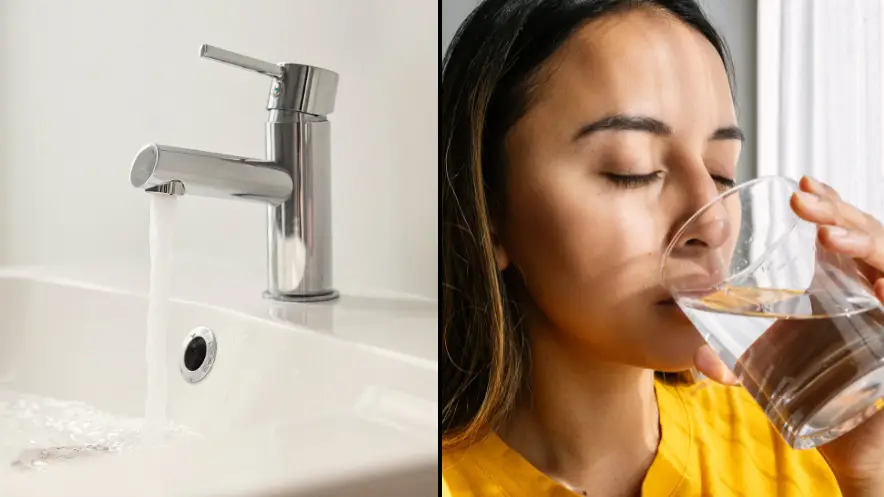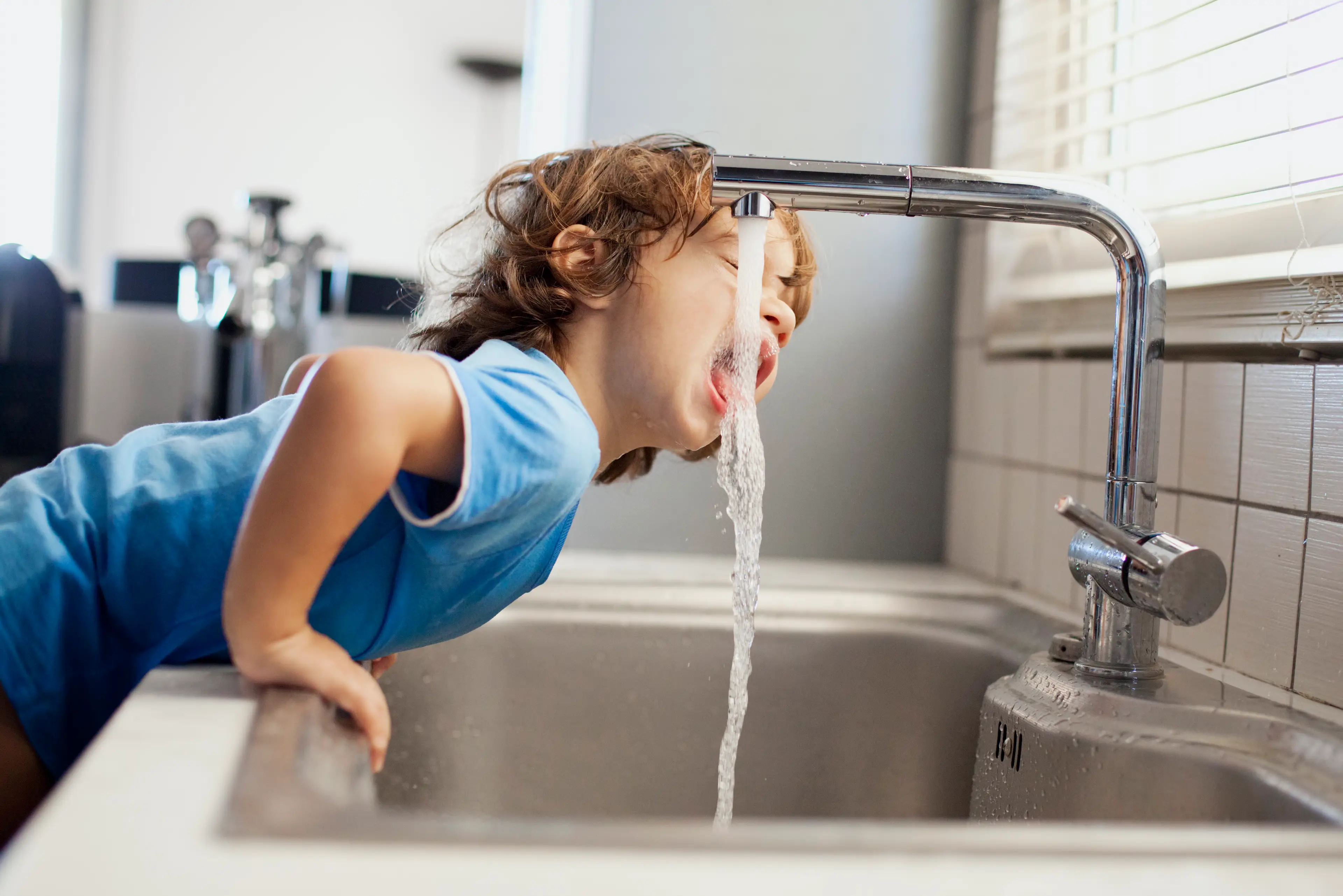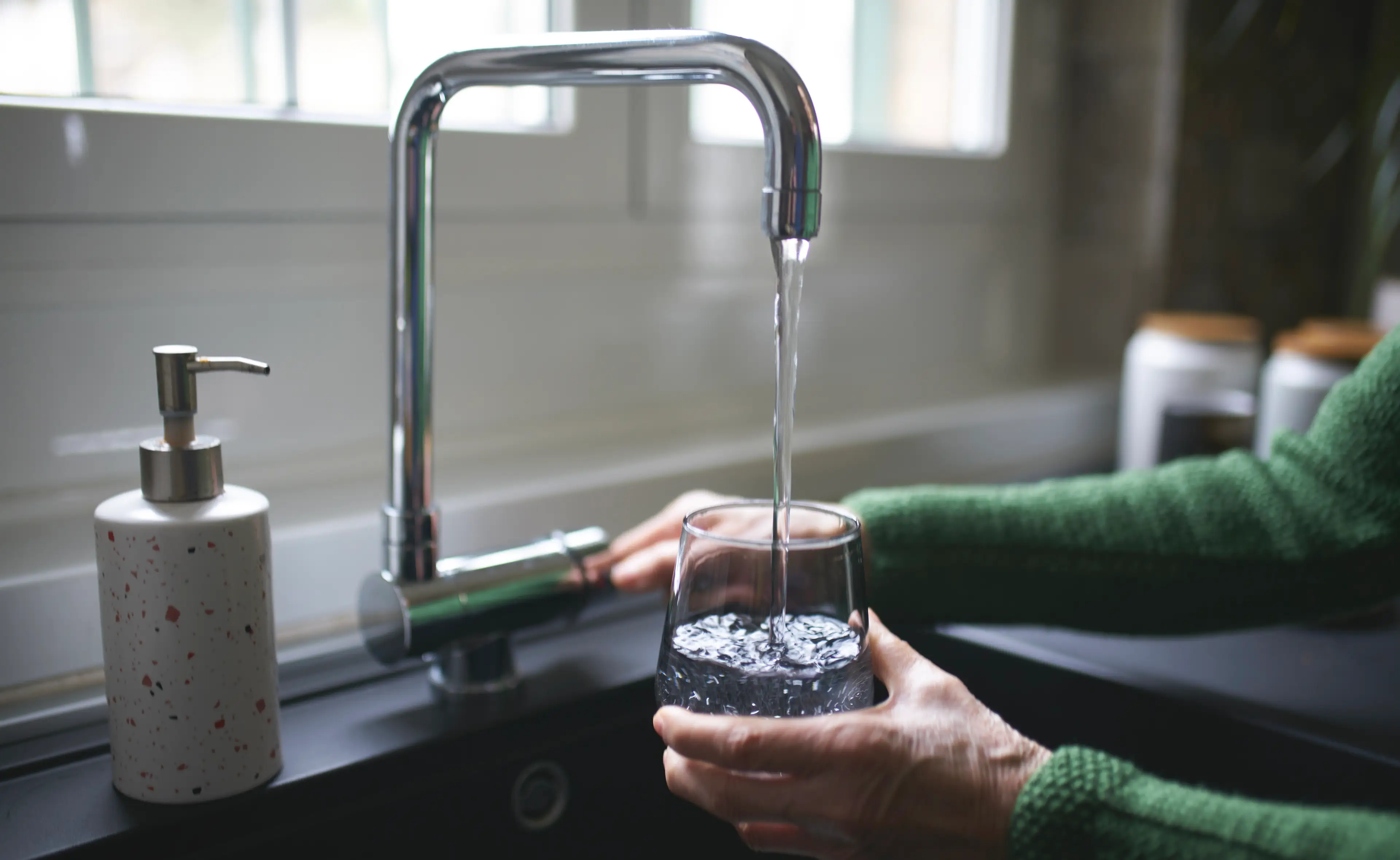
For some reason, when you wake up in the middle of the night with a raging thirst, the bathroom tap seems like a very attractive way to quench it.
You get to avoid traipsing all the way downstairs to grab a glass of water at an ungodly hour and thus can remain in your sleepy state, allowing you to easily sink back off into your slumber - so, what's the problem?
Well, it turns out your parents were right to smack you upside the head when you tried to purse your lips under the stream of water pouring into the bathroom sink, as it's not recommended for a reason.
Even though you might think it's done you no harm all these years and it's merely just a handy life hack to rehydrate, research from Scottish Water says otherwise.
Advert
The firm conducted some studies in partnership with WaterSafe into the safety of the H20 we swig from various water sources around our home, which found that the room you drink it in and even how old your house is can pose a risk.

One of the main problems is that in older homes, the water you get out of the tap in your toilet will no doubt be decidedly less fresh than its kitchen counterpart, due to a difference between both plumbing systems.
Bathroom water is often stored in a tank at the top of the house, which means there is a considerable danger of it being contaminated with outside sources, such as birds and other common household pests.
The best way of avoiding an upset stomach or any other health issues is to fill your glass from the fresh mains water, which comes straight out of your kitchen tap.
But that's not the only problem facing the bathroom tap water guzzlers out there.
In UK properties before 1970, lead was commonly used to make the piping connected to bathroom taps.
Over time, this poisonous metal ends up dissolving into the water supply, potentially causing a range of grizzly symptoms.
According to NHS Inform, in adults, lead poisoning could induce feelings of fatigue, headaches, and memory loss.

So this goes out especially to those people who rely on the bathroom tap to get them through the day while they're nursing a hangover - don't.
It sounds like it would really make your day of being rough from the beer much, much worse.
After 1970, lead pipes started to be replaced with plastic and copper alternatives which are far safer - but it’s worth checking your own property to confirm which ones you have.
Speaking back in 2018, WaterSafe spokesperson Julie Spinks said it was vital to replace lead piping.
She said: "The plumbing in homes is the responsibility of the homeowner, so we are urging all households to spend a few minutes checking if they have lead pipes.
“To safeguard health we would recommend replacing lead pipes that supply drinking water to bathrooms and kitchens with copper or plastic ones."
Victoria Plumbing also concurs with all these findings, warning that although technically speaking all water supplied to UK homes is safe drinking water, there are 'multiple variables' which can impact this and make it...less safe.
Kitchen taps or bottled water only, lads.
Topics: News, UK News, Health, Weird, Food And Drink